With a mix of in-person, drive-in, and digital screenings, most of the fall film festivals soldiered on during the pandemic, reimagining what a normal year may look like. While Venice International Film Festival kept things most status quo with physical screenings only, Toronto International Film Festival and the ongoing New York Film Festival switched up their formula and today we’re taking a look at our favorite premieres in this strange, historic year.
Unlike the other two festivals, NYFF heavily features festival favorites from throughout the year we’ve already reviewed (we’ve rounded those up here, rather than including below), plus look for more coverage in the two weeks remaining in the festival here as NYC drive-in and nationwide virtual screenings continue.
Check out our Venice, TIFF, and NYFF highlights below, along with a complete rundown of our reviews, and see full film festival coverage here.
The Best
76 Days (Weixi Chen, Hao Wu, and Anonymous)

76 Days, from directors Hao Wu, Weixi Chen, and an anonymous filmmaker,is a profound, heartbreaking work of documentary vérité investigating the emerging COVID-19 outbreak at a single hospital in Wuhan, China, and their response from early February to April 2020, when Wuhan lifted their initial lockdown. Eschewing contextualizing features (narration, title cards, etc.), 76 Days places viewers alongside doctors and nurses as they struggle to control the spiraling implications of COVID-19, dealing with an influx of scared patients, a virus they do not fully understand, and diminishing resources. Though 76 Days proves a hard watch, it’s a profoundly visceral look into how one hospital dealt with the raging virus. – Christian G. (full review)
Akilla’s Escape (Charles Officer)

There is a palpable sense of exhaustion and an air of dread over nearly every scene in Akilla’s Escape. It’s no wonder that despite the legalization of marijuana in Canada, Toronto-based drug dealer Akilla Brown is desperately trying to leave the trade. After all, in the film’s first thirty minutes, Brown has watched as a man is hacked to death before his eyes, was held at gunpoint, and was forced to knock out said gunman with a shocking act of quick-thinking. Meanwhile, his decision to exit the dealer life has drawn consternation from his colleagues. And he still has to break the news to “The Greek”––who, we can infer, is most likely not going to be happy. Oh, and Akilla must also step in to save the adolescent gunman’s life before he is suffocated to death by one of the Greek’s henchmen. – Chris S. (full review)
Another Round (Thomas Vinterberg)

If you find yourself needing to latch onto an obscure scientific theory to reinvigorate your energy level and live your life as more than a sleepwalking zombie, you’re probably not ready to actually confront the real problem. We know this to be true of the quartet at the center of Thomas Vinterberg’s effective, cathartic drama Druk (known in English as Another Round), since our first impression of Tommy (Thomas Bo Larsen), Peter (Lars Ranthe), Nikolaj (Magnus Millang), and especially Martin (Mads Mikkelsen) is that they have lost their spark. Sexually, intellectually, physically, emotionally—whatever spark you can describe in words, they’ve lost it. Call it a mid-life crisis if you want. Call it evidence for needing a therapist like it is. Or, as they decide, retrieve that long-lost courage at the bottom of a bottle. – Jared M. (full review)
City Hall (Frederick Wiseman)

In the opening shot of Frederick Wiseman’s National Gallery, a man polishes the floor in a room walled with masterpieces. Writing about the scene for MUBI recently, the critic Joseph Owen noted that “the politics of this institution exist in a subterranean passage: between its low-paid maintenance jobs and its disreputable oil sponsorships.” Petrodollars aside, it’s an observation that speaks in some way to any number of Wiseman’s films: that the souls of the institutions he so dedicatedly depicts are neither the heads on top, the public face or the multitude of working parts below but something malleable and indefinable in the middle. The director’s latest is documentary epic, a sprawling 4.5-hour study of Boston’s City Hall and its various satellite entities, that once again goes in search of that middle—although for once with an uncharacteristic scent of subjectivity. – Rory O. (full review)
Dear Comrades! (Andrei Konchalovsky)
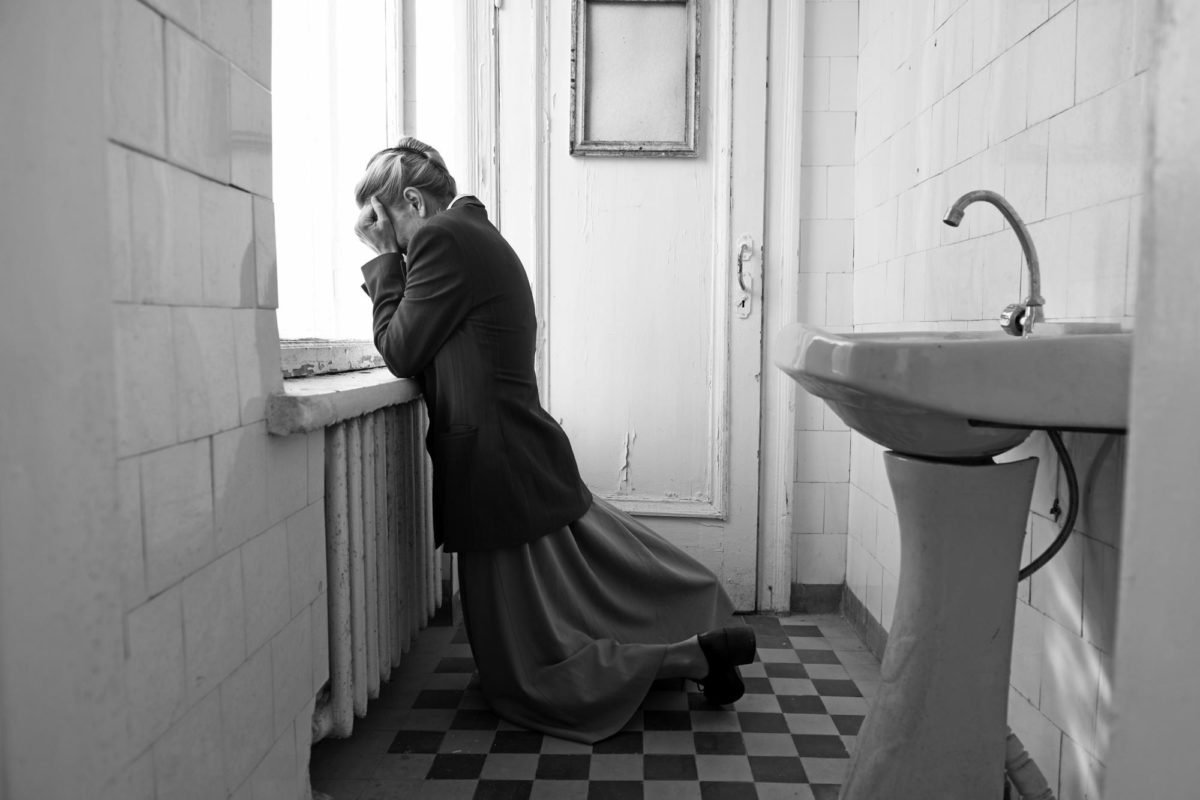
The gears of oppressive government bureaucracy are designed to crush homegrown opposition before it becomes too threatening. In that sense, institutions and policies put in place by Hitler’s Third Reich and Trump’s MAGA cult have a lot in common with those of 20th century Communist Russia, an ideological rope-a-dope that publically posited figureheads like Stalin and later Khrushchev as warriors of the people while privately undermining any citizen-led resistance with brutal force. Andrei Konchalovsky’s great new film Dear Comrades! depicts such a response with the sobering understanding that historical events of any magnitude can be easily manipulated to match the motivations of those in power. – Glenn H. (full review)
The Disciple (Chaitanya Tamhane)
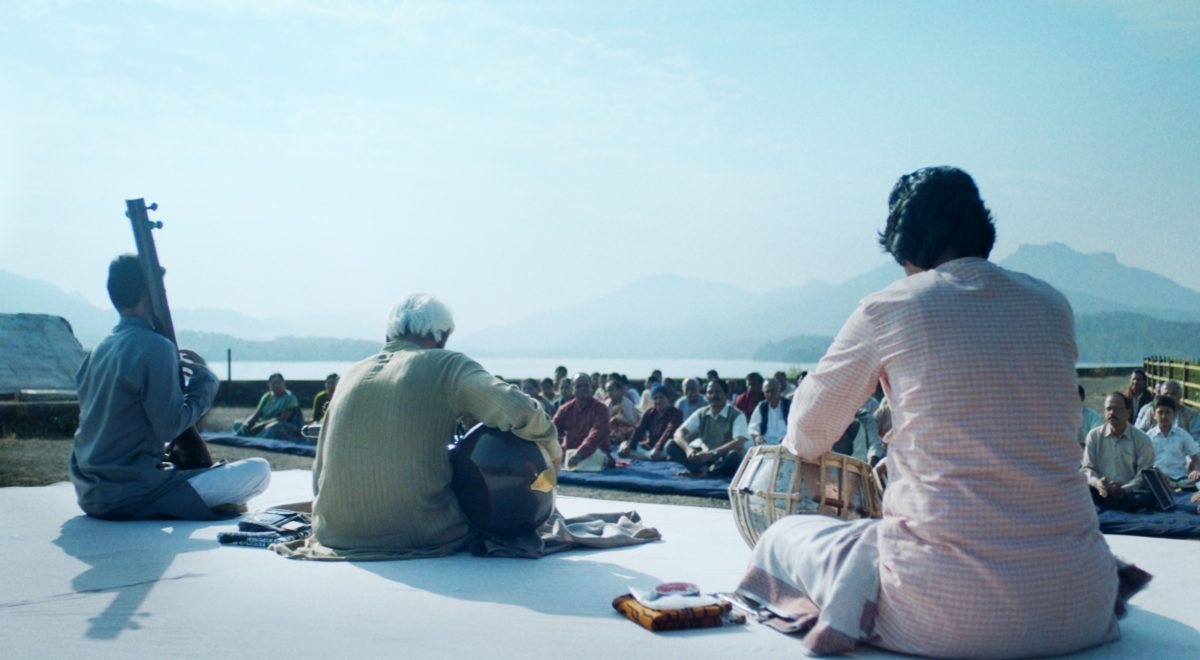
In The Disciple, a dedicated student of traditional North Indian music must grapple with the nagging feeling that he might not be quite good enough. The film is the latest from Chaitanya Tamhane, an Indian filmmaker who made a big splash in Venice in 2014 when his debut feature Court—a naturalistic film that quietly and comprehensively lampooned the Indian criminal justice system––won the Horizons award for best film. He was 27 at the time, still relatively young, yet some called it a masterpiece. Now at 33, Tamhane has followed it with a story about a person who hopes, perhaps in vain, to achieve such acclaim. We suggest approaching with a degree of caution if such doubts sound eerily familiar. – Rory O. (full review)
Enemies of the State (Sonia Kennebeck)

Documentarian Sonia Kennebeck’s feature debut National Bird focused on three whistleblowers speaking about the United States military’s use of drones in secret wars waged overseas. She gave those veterans a platform with which to tell their story and perhaps assuage some guilt while striving to find a hopeful path forward within a world plagued by technological warfare more akin to videogame detachment than seeing the “whites of an insurgent’s eyes.” So it makes sense that she’d also gravitate towards the wild conspiracies surrounding another whistleblower-adjacent figure in Matthew DeHart. He was seeking asylum in Canada at the time for what he believed was targeted criminal harassment by the US government for his role in hosting a server for Anonymous. It was a story that demanded to be told. – Jared M. (full review)
Fauna (Nicolás Pereda)

Early in Mexican-Canadian filmmaker Nicolás Pereda’s succinctly effective farce Fauna, Paco (Francisco Barreiro), a thespian with a non-speaking part in the popular show Narcos, is asked to conjure up a performance in the middle of an empty pool hall. His girlfriend’s father wants to see him act on command. Adding to the film’s meta undertones that later turn more noticeable is the fact that Barreirois is in fact part of the Netflix series. – Carlos A. (full review)
Good Joe Bell (Reinaldo Marcus Green)
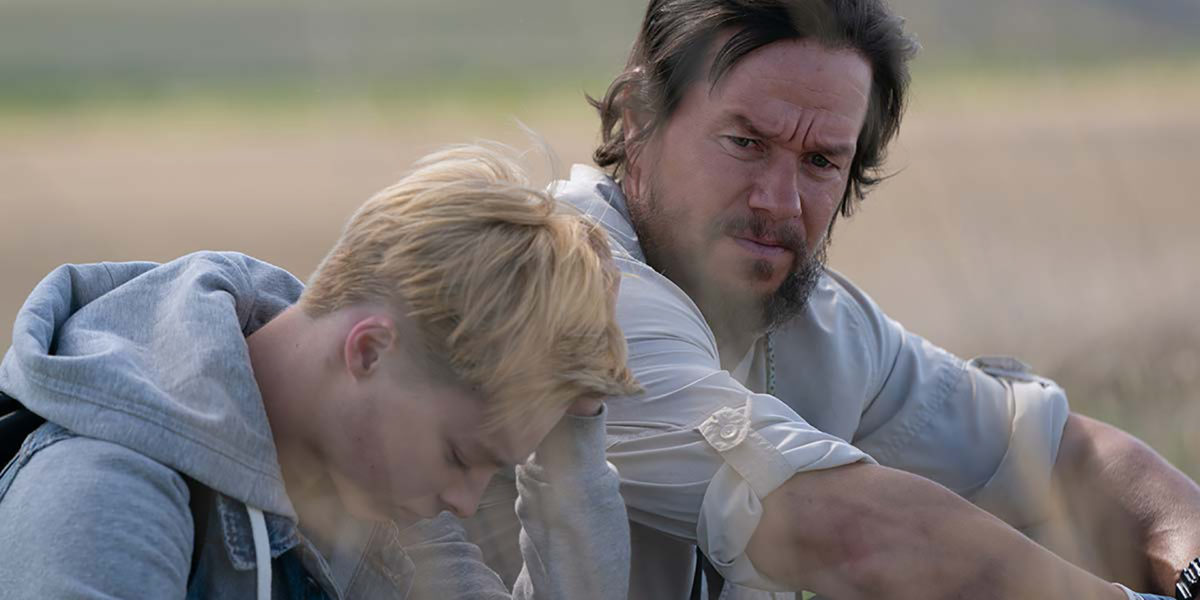
The first event at which we see Joe Bell (Mark Wahlberg) speak his anti-bullying message can’t help but make you laugh. He’s standing on-stage with a disheveled look cultivated by a weeks-long journey on foot, spouting more nervous “ums” then concrete dialogue as his son Jadin (Reid Miller) watches at the back of the auditorium. The scene lasts less than two minutes before Bell asks the audience of teenagers if they have any questions as though his awkward presence was enough to spark conversation let alone change. It’s the epitome of performative allyship and self-assuaging action that can often do more harm than good. An empty speech won’t inspire people to embrace a cause. It will instead embolden the intolerant into believing their opponents have nothing to say. – Jared M. (full review)
Her Socialist Smile (John Gianvito)

You may have known that Helen Keller was a comrade, a life-long socialist and member of the Industrial Workers of the World; in Her Socialist Smile, John Gianvito assembles Keller’s political addresses and writings into a portrait of a warrior for social justice and a passionate, insightful proselytizer of Marxist thought. She instigated a Braille translation of Bakunin and advocated for a general strike during the first Red Scare. Now, in a time of national self-criticism, when seemingly no American monument is safe from revisionism, Helen Keller emerges from Her Socialist Smile to appear even more inspiring, relevant, and righteous than in the official narrative—appears, perhaps, the only truly based person they teach you about in elementary school. – Mark A. (full review)
Limbo (Ben Sharrock)
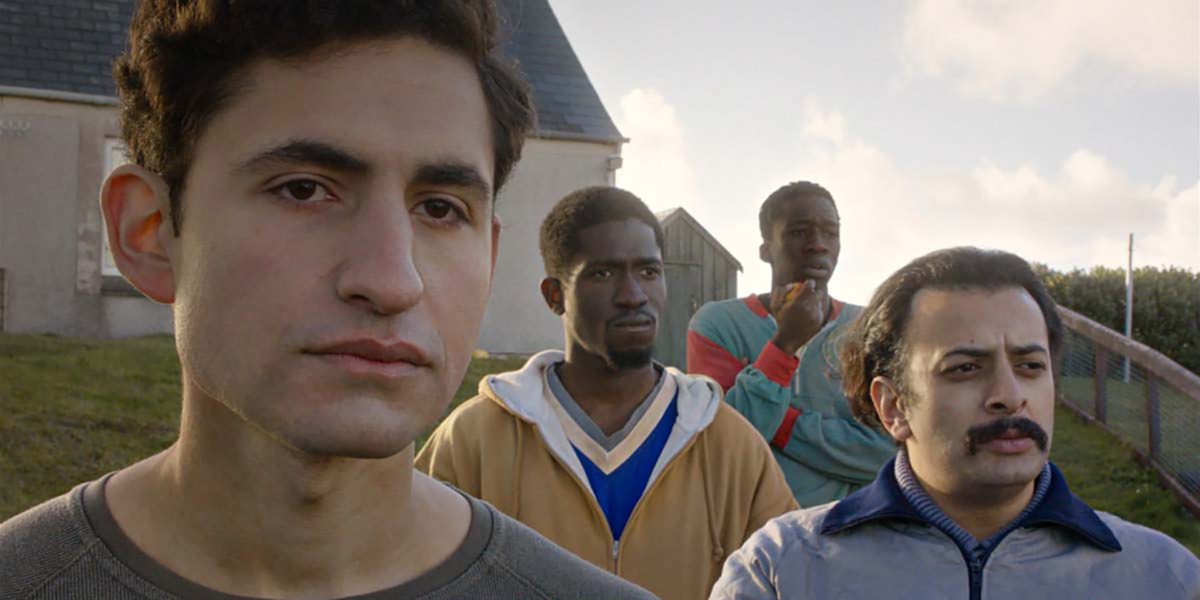
Two Africans, an Afghan, and a Syrian walk onto a remote island in Scotland. The punch line potential is infinite. Writer/director Ben Sharrock knows it too as he places them all in the same cramped apartment with a “Refugees Welcome” banner outside so they can argue about the merits of Ross and Rachel’s “break” courtesy of a burned Friends box set left behind by whomever lived there last. Add an eccentric cultural awareness course led by a duo in Helga (Sidse Babett Knudsen) and Boris (Kenneth Collard) who teach sexual harassment by having the former smack the latter’s intentionally handsy dance partner in the face and you’ll find yourself mimicking the class of foreigners watching in stunned silence thanks to the dryly humorous mix of confusion and horror. – Jared M. (full review)
Lovers Rock (Steve McQueen)
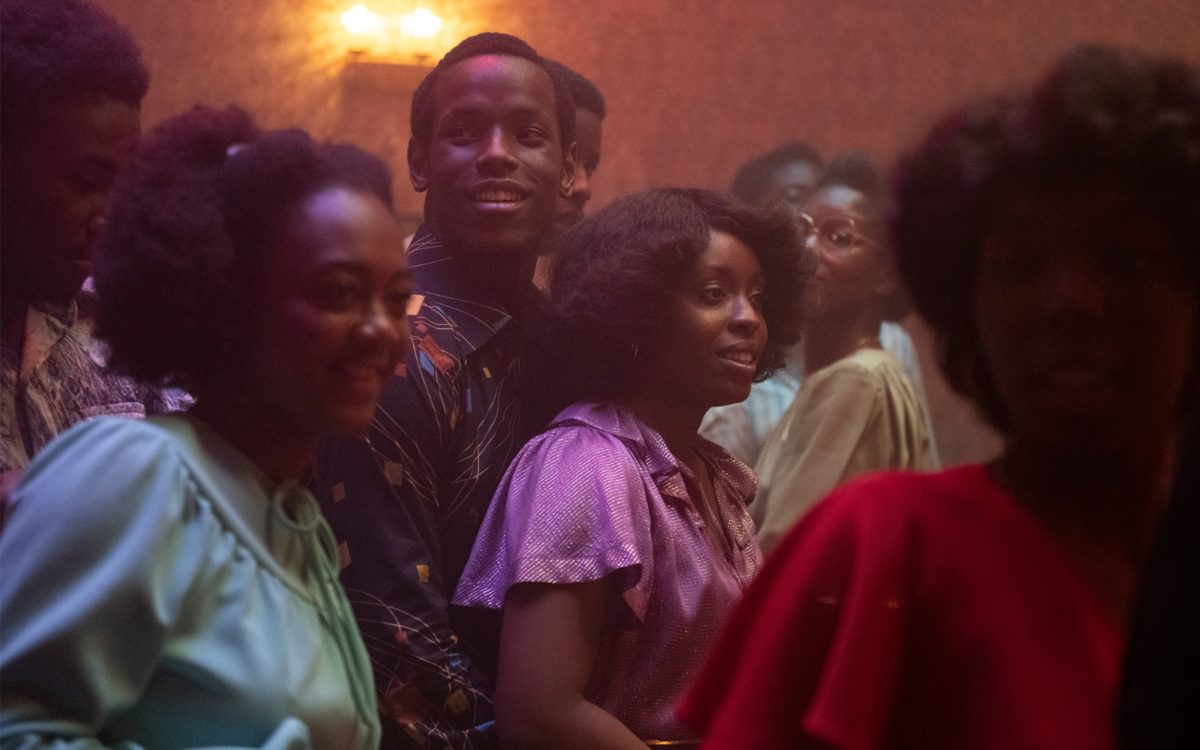
An appropriately buoyant opening-night choice for this year’s New York Film Festival, Lovers Rock chronicles an underground London blues party, a space where Black Brits could cut loose and dance safe from white harassment. Director Steve McQueen presents the house party as a mostly utopic place, one maintained and policed by community committed to the ideals of spiritual liberation. The film’s fluid, handheld camerawork, courtesy of Shabier Kirchner, foregrounds positive vibes, detailing every inch of the tight dance floor and basking in the glow of unencumbered joy. These gatherings represent a release from a socially and politically marginalized group, but that subtext merely pulses underneath Lovers Rock, contextualizing the film without ever overwhelming it. The organic community portrait ebbs and flows to a beat of its own making. – Vikram M. (full review)
Mandibules (Quentin Dupieux)

Like the giant fly in Mandibules, director Quentin Dupieux has been buzzing and provoking us for roughly the past decade, trying to build a reputation as a new French surrealist auteur. Many were won over by last year’s Deerskin, buthis latest bizarre creation truly confirms his talent. His two best-known features, Rubber and the aforementioned Deerskin,can be summed up in a simple high-concept phrase: respectively, the “killer tire film” and the “killer jacket film.” In surrealist logic, the evolutionary chain clearly goes from tire to scream (Reality) to jacket and now to fly. Rather than something out of Cronenberg’s beloved remake, this fly is a charming, almost Spielbergian creature––far less dangerous than its human cast members. The film is notable for finding different sources of humor, puerile as they may be, than his usual theatrical violence. – David K. (full review)
Mangrove (Steve McQueen)
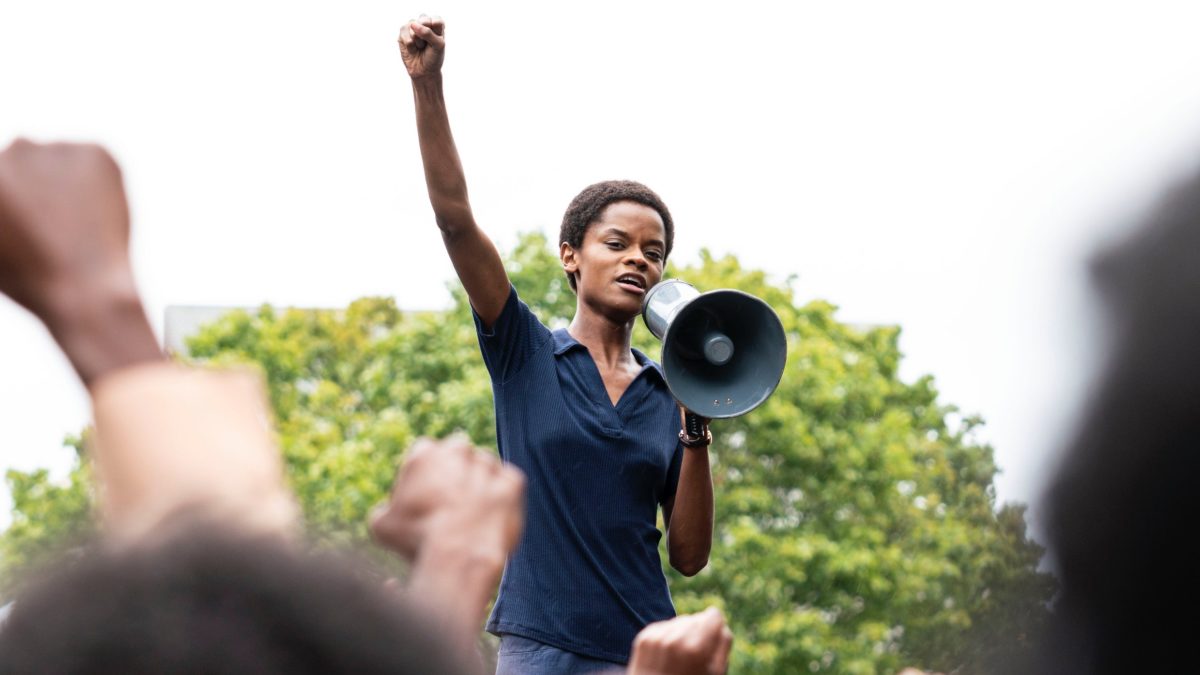
Mangrove, the second film from Steve McQueen’s Small Axe anthology series to premiere at the 58th NYFF, covers the incidents precipitating, and including, the trial of the Mangrove Nine, a group of British Black activists unduly tried for inciting a riot during a demonstration against the Metropolitan Police. The Mangrove, a West Indian restaurant in the Notting Hill area, was a crucial space for the surrounding Black community, and was the meeting place for many prominent intellectuals and Black Panther activists, like Darcus Howe (Malachi Kirby), Altheia Jones-LeCointe (Letitia Wright), and Barbara Beese (Rochenda Sandall). The Metropolitan Police sought fit to constantly harass its owner, Frank Crichlow (Shaun Parkes), and repeatedly raid the restaurant under suspicion of gambling, prostitution, and drug use. When a protest against the police turned violent, Crichlow and other community members find themselves on trial defending their right to exist against a colonialist system all too prepared to classify them as thugs. – Vikram M. (full review)
Notturno (Gianfranco Rosi)
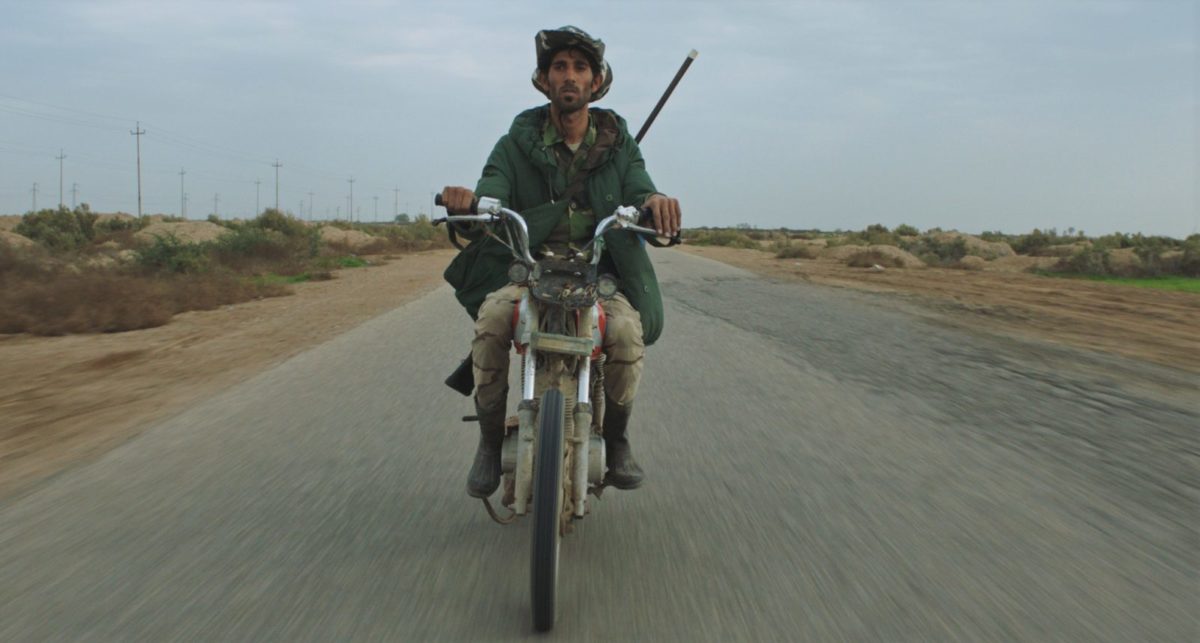
The reaction to Notturno is going to be as interesting to observe as the work itself, and it begs to be further contextualized by experts on the Syrian Civil War and ISIS. The stellar documentary further confirms Gianfranco Rosi’s mastery of his chosen form: concise narratives of ordinary people captured in their environments––often those afflicted by broader conflicts––and all depicted through precise still compositions that double as formally polished photojournalism. – David K. (full review)
One Night in Miami… (Regina King)
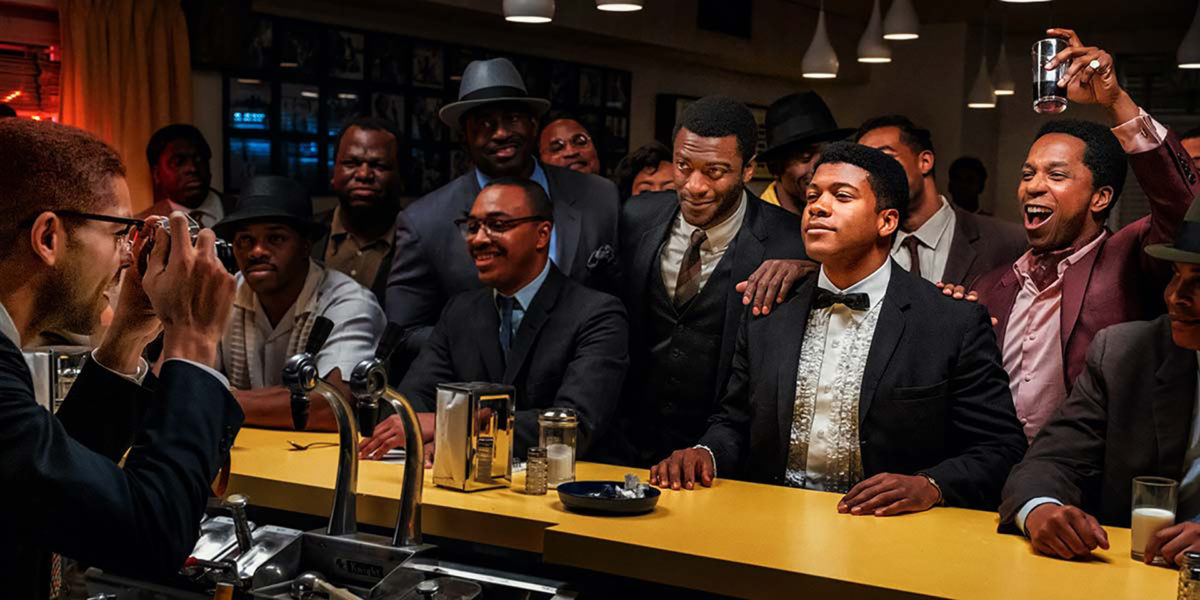
The power behind Regina King’s directorial debut (adapted by Kemp Powers from his own play) One Night in Miami… is epitomized by an exchange between Malcolm X (Kingsley Ben-Adir) and Jim Brown (Aldis Hodge) a little more than halfway through. It’s the night their friend Cassius Clay (Eli Goree) became the surprise heavyweight-boxing champion of the world and the two are alone in the former’s hotel room while the Champ chases down the fourth member of their quartet, Sam Cooke (Leslie Odom Jr.), after he stormed out frustration. The conversation moves from colorism to the motivations for their actions straight into the notion of duty within the civil rights movement. Malcolm sees his friends as leaders armed with the voices and platforms to shift the tide. – Jared M. (full review)
Shiva Baby (Emma Seligman)

It is apropos that Emma Seligman’s Shiva Baby is screening in the Toronto International Film Festival’s Discovery platform. It is a discovery, in every sense: the discovery of a new comic voice behind the camera, the discovery of a note-perfect star in lead actor Rachel Sennott, and the discovery of a viewing experience that is at once hilarious, awkward, uncomfortable, and unforgettable. Shiva Baby is a blast of energy and from its first moment to its last Seligman finds the right balance. There is genuine suspense, if not horror; the score, by Ariel Marx, could just as easily fit a summer camp slasher flick. But the greatest feeling for the audience––after discomfort––is excitement. – Chris S. (full review)
Wolfwalkers (Tomm Moore and Ross Stewart)

The woodsmen are clearing out the forest to expand Kilkenny, Ireland’s farmland circa 1650 under orders of Lord Protector Cromwell (Simon McBurney)—an Englishman. He and the British crown see these Irish folk as a people in need of taming so it’s only fitting that he try his hand at ridding the countryside of wolves first. This is something these peasants can get behind because they fear what those beasts might do if left unchecked. They clamor for the soldiers to protect them. They willingly invite another Englishman in Bill Goodfellowe (Sean Bean) to serve as the Lordship’s chief hunter to do the deed. And this fearmongering distracts them from realizing how Cromwell’s threat of burning the forest if he fails foreshadows how he’ll treat their non-compliance too. – Jared M. (full review)
The Rest
Apples (B)
Beans (B)
The Human Voice (B)
Inconvenient Indian (B)
Like a House on Fire (B)
The Monopoly of Violence (B)
My Mexican Bretzel (B)
Night of the Kings (B)
Pieces of a Woman (B)
Spring Blossom (B)
Under the Open Sky (B)
Violation (B)
Wildfire (B)
Wife of a Spy (B)
The World to Come (B)
The Best Is Yet to Come (B-)
Holler (B-)
Hopper/Welles (B-)
I Care a Lot (B-)
The Kid Detective (B-)
Nomadland (B-)
Sportin’ Life (B-)
Underplayed (B-)
Beginning (C+)
In Between Dying (C+)
Salvatore: Shoemaker of Dreams (C+)
Shadow in the Cloud (C+)
Tragic Jungle (C+)
The Water Man (C+)
American Utopia (C)
Concrete Cowboy (C)
Memory House (C)
Monday (C)
The New Corporation: The Unfortunately Necessary Sequel (C)
New Order (C)
Summer of 85 (C)
The Book of Vision (C-)
Mainstream (D-)
Follow our complete film festival coverage here.
